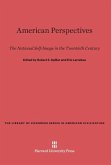Current demographic developments and change due to long life expectancies, low birth rates, changing family structures, and economic and political crises causing migration and flight are having a significant impact on intergenerational relationships, the social welfare system, the job market and what elderly people (can) expect from their retirement and environment. The socio-political relevance of the categories of 'age' and 'ageing' have been increasing and gaining much attention within different scholarly fields. However, none of the efforts to identify age-related diseases or the processes of ageing in order to develop suitable strategies for prevention and therapy have had any effect on the fact that attitudes against the elderly are based on patterns that are determined by parameters that or not biological or sociological: age(ing) is also a cultural fact. This book reveals the importance of cultural factors in order to build a framework for analyzing and understanding cultural constructions of ageing, bringing together scholarly discourses from the arts and humanities as well as social, medical and psychological fields of study. The contributions pave the way for new strategies of caring for elderly people.
Hinweis: Dieser Artikel kann nur an eine deutsche Lieferadresse ausgeliefert werden.
Hinweis: Dieser Artikel kann nur an eine deutsche Lieferadresse ausgeliefert werden.








